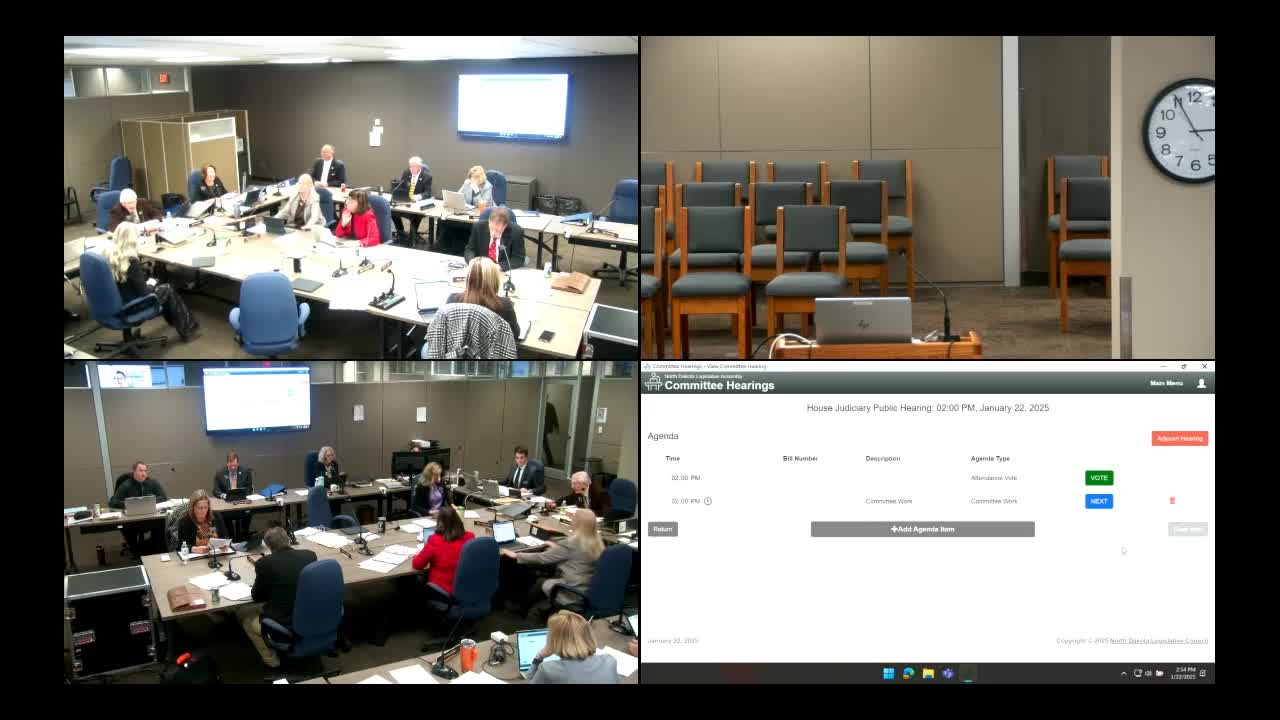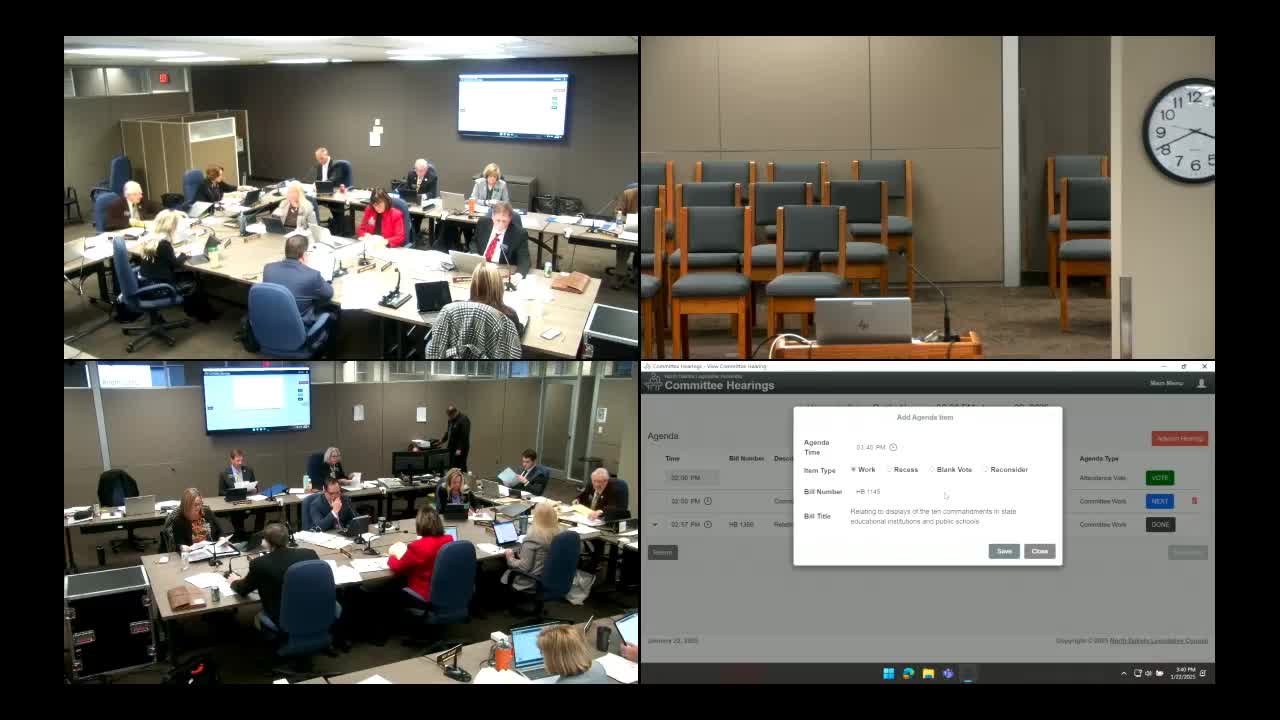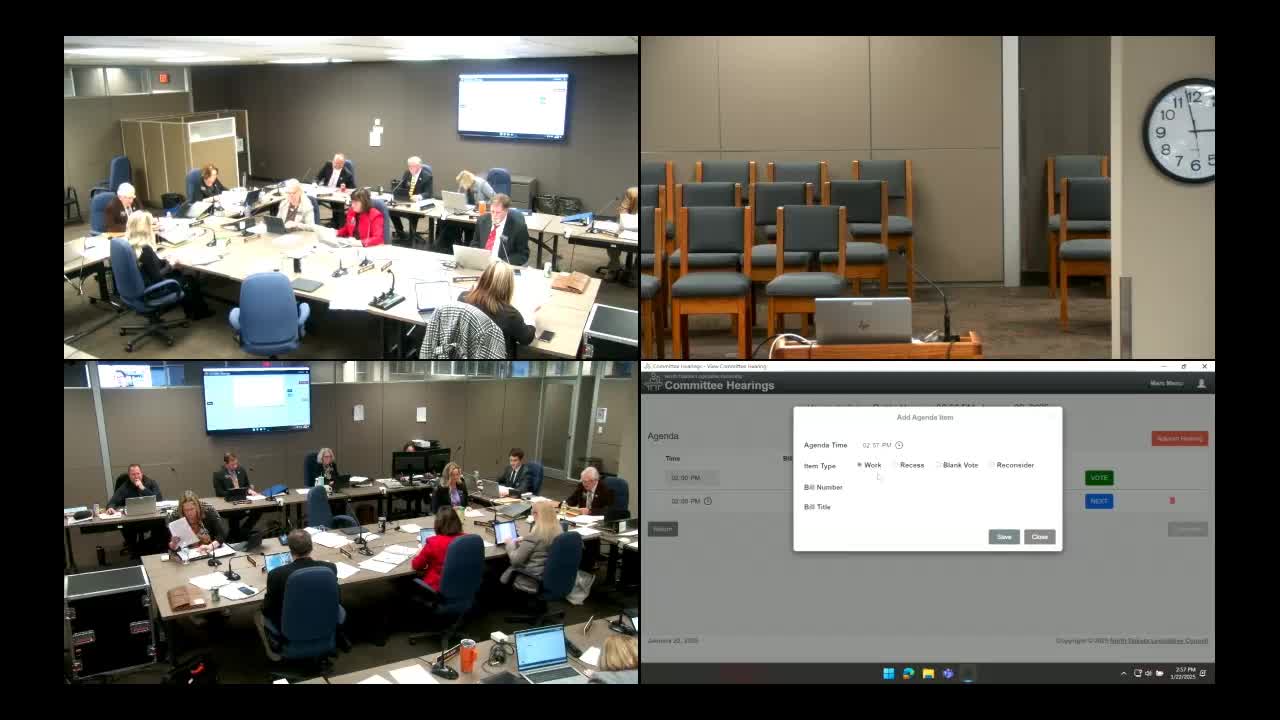Article not found
This article is no longer available. But don't worry—we've gathered other articles that discuss the same topic.

Committee holds House Bill 1290 pending fiscal note at attorney general's request

Committee amends bill to require Ten Commandments displays in school cafeterias; chair to seek fiscal note

